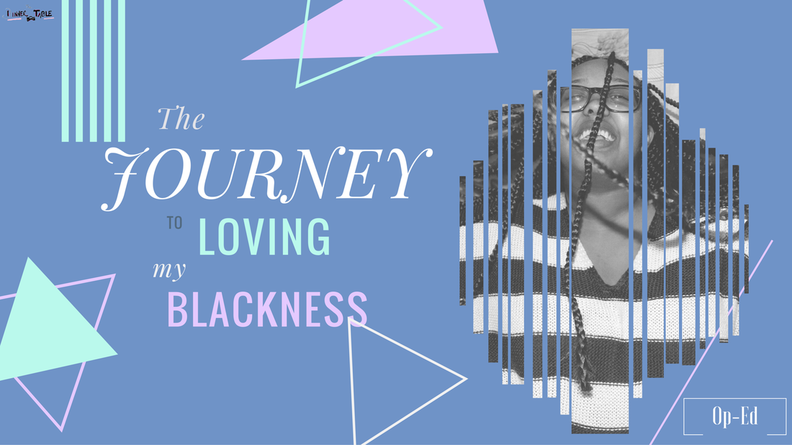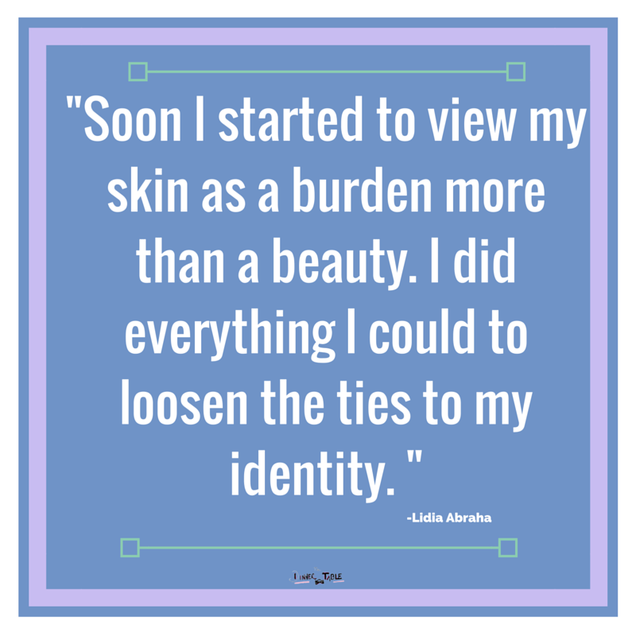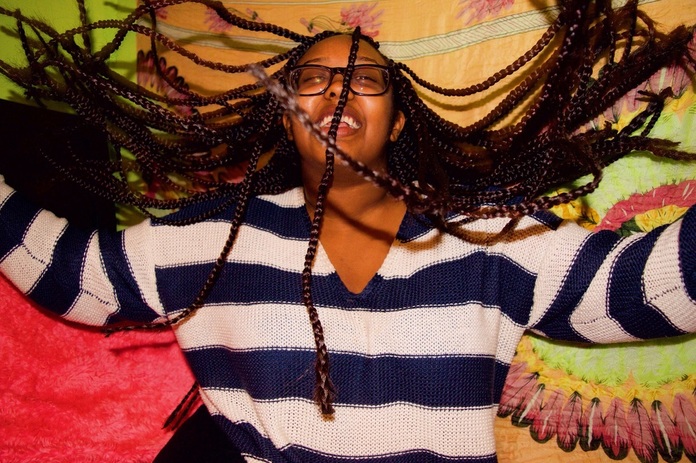|
It’s done. It only took six hours, but it was worth it. My new long braids really do look beautiful. A lot better than I thought it would, to be honest. I never would’ve thought that I would do it, fifteen-year-old me would be so shocked. But that was the misguided-me, the self-hating-me, the bend-over-backwards-for-white-people me. And that girl died a long time ago. I grew up in Apex, North Carolina, probably the whitest place on earth. It’s probably the exact definition of suburban America, if I’m not mistaken (click here if you don’t believe me). I was surrounded by whiteness everywhere. There was no diversity at all in this small country town. It affected me so much that I began to idolize them; I worshiped their fair skin and softer hair and despised my own. Once, when I was just about eight years old, I dared uttered the words “I wish I was white.” My mother had a fit, but it didn’t change anything. Soon I started to view my skin as a burden more than a beauty. I did everything I could to loosen the ties to my identity. So when people said I was black I’d correct them and say I was Ethiopian, as if the KKK would be able to tell the difference. My apprehension seemed to be rewarded with praise. People would tell me I’m pretty for a black girl or that “I don’t talk like them” (to this day I’m still not sure who “them” is). As more and more people said these things, the more and more I came to appreciate it, not only that but I became proud of it. Now, I know I’m not the only one with this type of story, I’ve come to know a lot of people especially those who are African/biracial that did what I did. It’s almost like a defense mechanism; blacks are constantly being put down and misrepresented so we try to do everything we can to not become victims of that hate. I find this even more prevalent in the Ethiopian community; I know plenty of kids that I watched grow up say things like “I’m not black, I’m Ethiopian” or they say things like “blacks are lazy” just to uplift themselves. Now I could stand here and criticize this practice, but what really interests me about this problem is how badly we want to separate ourselves from being black. Why is it that from such a young age, we learn that blackness is something to be ashamed of? Not only that, but we must do everything in our power to hide our blackness by assimilating to what white people find “acceptable”. It took me a while to realize how messed up that is. But evidently I did. The inconsistencies and the fallacies began to add up. So much so that it seemed illogical to hate myself for wearing the beautiful ebony armor that I’ve been gifted with. I grew to learn how beautiful my blackness is, and how the complexion of my skin and the curls in my hair were so unique that it should be celebrated instead of put down. I grew to understand our complex history and I started to truly appreciate black culture. I fell in love with the music, the style, the art, and the hair we can never leave out the hair. It wasn’t until recently that I realized my entire southern life has been filled with racism and discrimination, and that I’ve been white-washed to believe otherwise. Once I realized the plight of the modern black women, I started to be more vocal about it. I voiced my concerns about the current system and the racism that’s intertwined with it. Then I started to dig deep into my own identity. I learned about the parts of black history that they don’t teach in schools. I started listening to more pro-black music and watched more pro-black movies. Through this insight I felt more liberated. I stopped damaging my hair and went natural. Through this I started to feel more at peace with myself like I wasn’t living a lie anymore. That’s what happens when you become woke; you’re more you. Photo Courtesy of Lidia Abraha Words cannot even begin to describe how relieved I felt once I started to embrace my blackness. For once, I felt like my body was my own; a temple that’s been defaced, burnt to the ground, and scared, but my own nonetheless. I finally feel like I have control over my identity, and I can embrace every inch of my blackness and femininity without seeking approval from anybody. Every black person has their own journey to loving their blackness. But the journey is much more unique for black women. For some reason, there’s this hammering pressure for black women to conform to eurocentric standards of beauty, and a pressure to act a certain way that brings comfort to white people. Despite us knowing that the pressure’s there, and how dangerous it is, we still conform to it. And that, will never cease to amaze me. I, too, am victim to the self-hate perpetuated by images in media and a lack of strong black female role models in my life. But I will not let that stop me from loving myself and every inch of my blackness. Because being black is TRULY a blessing; I just wished I had realized it sooner. Written By: Lidia Abraha
1 Comment
Tsgireda
2/29/2016 05:55:08 pm
I love this so much!
Reply
Leave a Reply. |
Archives
May 2022
|



 RSS Feed
RSS Feed